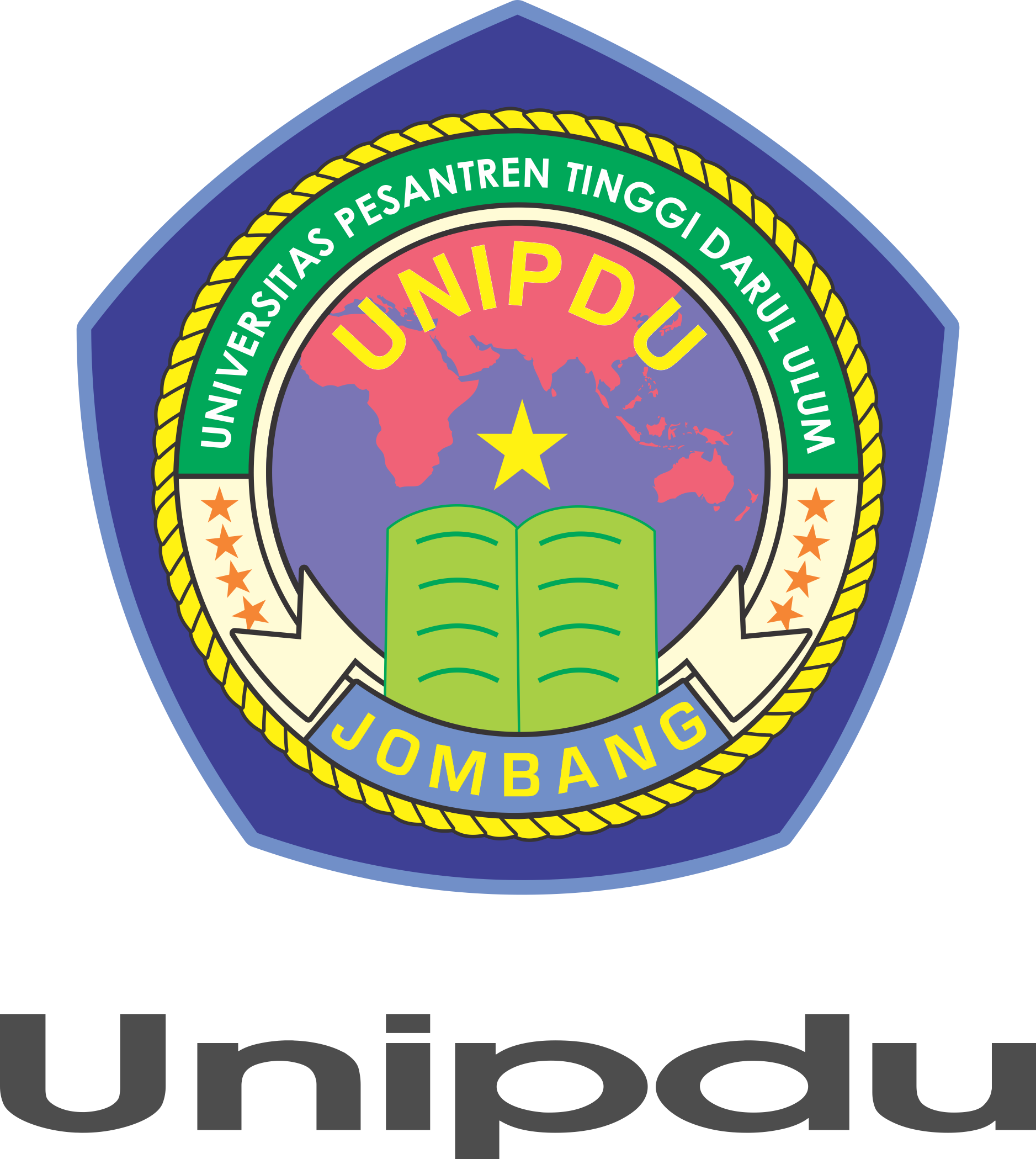KECEMASAN MATEMATIKA PADA MAHASISWA CALON GURU MATEMATIKA
DOI:
https://doi.org/10.26594/jmpm.v1i1.508Keywords:
Kecemasan matematika, calon guru matematikaAbstract
Kecemasan matematika yang memiliki pengaruh negatif pada diri seseorang ditemukan dari jenjang sekolah dasar hingga perguruan tinggi. Dalam penelitian ini, dikaji apakah mahasiswa calon guru matematika juga memiliki kecemasan matematika. Subjek penelitian ini adalah 20 mahasiswa Pendidikan Matematika di salah satu perguruan tinggi swasta di Jawa Timur. Metode yang digunakan adalah dengan metode campuran dengan desain triangulasi. Angket atau skala kecemasan matematika dan peneliti melalui kegiatan wawancara menjadi instrumen yang digunakan dalam penelitian ini. Dari hasil penelitian diketahui bahwa secara umum kecemasan matematika mahasiswa calon guru tersebut berada pada level sedang.
Apabila ditinjau dari aspeknya, kecemasan ketika mengajar dan ketika tes matematika merupakan kecemasan yang tertinggi, bila dibandingkan dengan ketika mereka bekerja dalam kelompok matematika. Kecemasan ini lebih dominan tampak pada domain cognitive dan mathematics knowledge/understanding. Dimana mereka merasa pengetahuan mereka masih kurang dan mereka merasa tidak cukup kompeten dalam matematika atau kemampuan mengajarnya.
References
Azwar, S. (2012). Sikap Manusia: Teori dan Pengukurannya. Edisi ke 2. Yogyakarta: Pustaka Pelajar.
Boyd, W., Foster, A., Smith, J., & Boyd, W.E. (2014). Feeling Good about Teaching Mathematics: Addressing Anxiety amongst Pre-Service Teacher. Creative Education, 5, 207-207.
Brown, A.B., Westenskow, A., & Moyer-Packenham, P.S. (2011). Elementary Pre-service Teachers: Can They Experience Mathematics Teaching Anxiety without Having Mathematics Anxiety?. IUMPST: The Journal, 5.
Bursal, M. & Paznokas, L. (2006). Mathematics Anxiety and Pre-service Elementary Teachers‟ Confidence to Teach Mathematics and Science. School Science and Mathematics, 106 (4), 173-179.
Cartioglu, H., Gurbuz, R., & Birgin, O. (2014). Do Pre-Service Elementary School Teacher Still Have Mathematics Anxiety? Some Factors and Correlates. Bolema, 28 (48), 110-127.
Choppin, J. (2011). The Role of Local Theories: Teacher Knowledge and Its Impact on Engaging Students with Challenging Task. Mathematics Education Education Research Journal, 23 (5), 5-25.
Cooke, A., Cavanagh, R., Hurst, C., & Sparrow, L. (2011). Situasional Effects of Mathematics Anxiety in Pre-service Teacher Education. Makalah disajikan pada 2011 AARE International Research in Education Conference, Melbourne, Australia.
Cooke, A. & Hurst, C. (2012). Mathematics Competency and Situasional Mathematics Anxiety: What Are The Links and How Do These Links Affect Teacher Education Programs?. Makalah disajikan pada International Conference, Sidney.
Creswell, J.W. & Clarck, V.L.P. (2007). Designing and Conducting Mixed Methods Research. California: Sage Publications, Inc.
Erdogan, A., Kesici, S., & Sahin I. (2011). Prediction of High School Students‟ Mathematics Anxiety by Their Achievement Motivation and Social Comparison. Elementary Education Online, 10 (2), 646-652.
Gleason, J. (2008). Relationship between Pre-service Elementary Teachers‟ Mathematics Anxiety and Content Knowledge for Teaching. Journal of Mathematics Science and Mathematics Education, 3 (1), 39- 47.
Haciomeroglu, G. (2013). Mathematics Anxiety and Mathematics Beliefs: What Is the Relationship in Elementary Pre-service Teachers?. IUMPST: The Journal, 5.
Herman, T. (2005). Mengajar dan Belajar Matematika dengan Pemahaman, (Online), (http://file.upi.edu/Direktori/D%20-%20FPMIPA/JUR. %20PEND.%20MATEMATIKAA/196210111991011%20-%20TATANG%20HERMAN/Artikel/Artikel13.pdf, diakses 26 Januari 2013).
Jackson, C.D., & Leffingwell, R.J. (1999). The Role of Instructors in Creating Mathematics Anxiety from Kindergarten through College. Mathematics Teacher, 92 (7), 583-586.
Karimi A & Venkatesan S. (2009). Mathematics Anxiety, Mathematics Performance and Academic Hardiness in High School Students. International Journal of Education and Science. 1 (1), 33-37.
Khatoon, T. & Mahmood, S. (2010). Mathematics Anxiety Among Secondary School Students in India and its Relationship to Achievement in Mathematics. European Journal of Social Science, 16 (1), 75-86.
Lyons I.M. & Beilock S.L. (2012). When Math Hurts: Math Anxiety Predicts Pain Network Activation in Anticipation of Doing Math. PlosOne. 7 (10), 1-6.
Ma, X. (2003). Effect of Early Acceleration of Students in Mathematics on Attitude toward Mathematics and Mathematics Anxiety. Teachers College Record, 105 (3), 438-464.
Malinsky, M., dkk.. (2006). Math Anxiety in Pre-Service Elementary School Teacher. Education, 127 (2), 274-279.
Meece, J.L., Wigfiled, A., & Eccles J.S. (1990). Predictors of Math Anxiety and Its Influence on Young Adolescents‟ Course Enrollment Intentions and Performance in Mathematics. Journal of Educational Psychology, 82 (1), 60-70.
Peker, M. (2009). Pre-Service Teachers‟ Teaching Anxiety about Mathematics and Their Learning Styles. Eurasia Journal of Mathematics, Science, & Technology Education, 5 (4), 335-345.
Peker, M. & Ertekin, E. (2011). The Realationship between Mathematics Teaching Anxiety and Mathematics Anxiety. The Educational Review, 23(1), 213-226.
Sherman, B.F. & Wither, D.P. (2003). Mathematics Anxiety and Mathematics Achievement. Mathematics Education Research Journal, 15 (2), 138-150.
Swars, S.L., Daane, C.J. & Giesen, J. (2007). Mathematics Anxiety and Mathematics Teacher Efficacy: What is The Relationship in Elementary Pre-service Teacher. School Science and Mathematics, 106 (7), 306-315.
Wilson, S. (2009). “Better You Than Me”: Mathematics Anxiety and Bibliotherapy in Primary Teacher Professional Learning. Dalam Hunter, R., Bicknell, B. & Burgess, T. (Eds.). Crossing divides: Proceedings of the 32nd annual conference of the Mathematics Education Research Group of Australasia (Volume 2) (hlm. 603-610). Palmerston North, NZ: MERGA.
Woodard, T. (2004). The Effect of Math Anxiety on Post-Secondary Development Students as Related to Achievement, Gender, and Age. Inquiri, 6 (1).
Young-Loveridge, J. (2010). Two Decades of Mathematics Education Reform in New Zealand: What Impact on the Attitudes of Teacher Education Students?”. Dalam Sparrow, L., Kissane, B., & Hurst, C. (Eds.). Shaping the future of mathematics education: Proceedings of the 33rd annual conference of the Mathematics Education Research Group of Australasia (hlm. 705-712). Fremantle: MERGA.
Downloads
Published
Issue
Section
License
All information and contents of articles contained in JMPM: Jurnal Matematika dan Pendidikan Matematika are free to read, download, print, copy, or share with various legal purposes.
The formal legal aspect of access to any information and articles contained in this journal website refers to the Creative Commons Attribution 4.0 International (CC BY 4.0) license terms.











